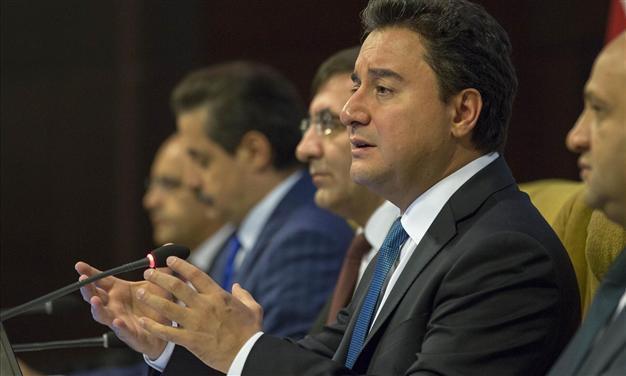Turkey cuts growth estimates, raises inflation forecast
ANKARA – Reuters

Deputy Prime Minister Ali Babacan sounded downbeat on the Turkish economy during a press conference on Oct. 8. AA Photo
Turkey has slashed its growth estimates and raised its inflation forecast for 2014 and 2015, Deputy Prime Minister Ali Babacan said on Oct. 8, citing unfavorable conditions in the global economy.Government officials have warned that tensions in Iraq and Syria, as well as Ukraine, combined with slower growth in Europe could hit the economy, putting pressure on the Central Bank to cut rates and support growth.
Fighting inflation will continue to be the fundamental priority of Turkey’s economic plan in 2015 to 2017, Babacan said, along with boosting growth and reducing the current account deficit.
He told a press conference that year-end inflation was likely to reach 9.4 percent, well above the Central Bank’s forecast of 5.3 percent, before falling to 6.3 percent in 2015, up from estimates in a previous three-year economic program.
Turkey is struggling to control inflation even as its economy slows and conflict intensifies in neighboring countries.
Babacan said weakness in the recovery in Europe, Turkey’s biggest trading partner, has weighed on the outlook.
“The European Central Bank is taking steps to support the economic recovery ... These developments in our largest trading partner have an impact on Turkey’s economy,” he said.
Estimates of economic growth for the next two years have also been slashed. Turkey’s economy was set to grow by 3.3 percent this year, Babacan said, and 4 percent next year.
Babacan said narrowing Turkey’s current account deficit was the second priority in the economic program, and added that the government aimed to reduce the deficit to 5.2 percent of gross domestic product by 2017, from 5.2 percent expected this year.
Turkey is especially sensitive to changes in global liquidity because of its large current-account deficit which was easier to finance during the years of cheap U.S. funding.
















